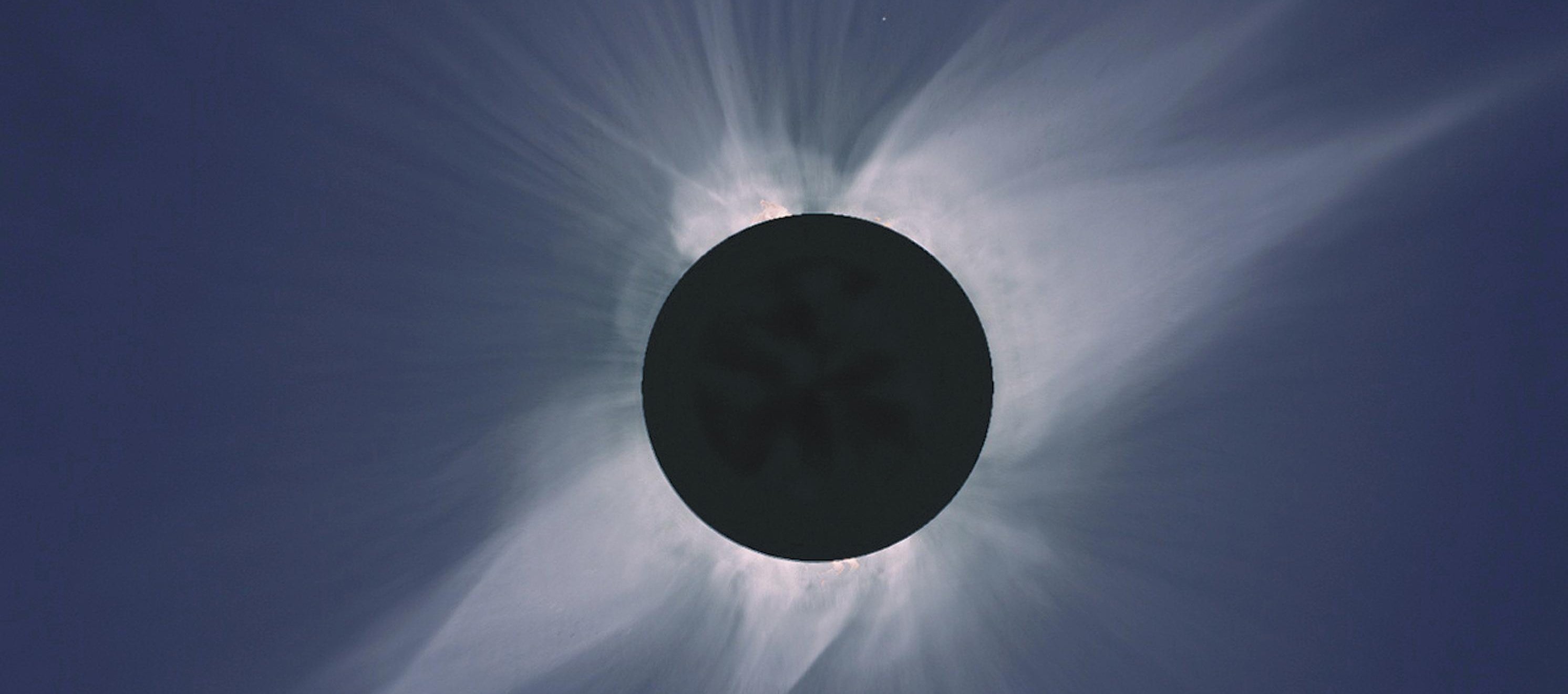
On Monday, North America will get to see something spectacular: a full solar eclipse! A huge portion of the U.S. will be within the path of totality, able to experience the sun being reduced to a glowing ring with sunset falling on every horizon. Eclipses have long been seen as ill portents and bad omens, tied to deaths of kings and emperors. In ancient times, the sun’s temporary disappearance in broad daylight was a calamity brought upon by the gods themselves. But as we now rely on the sun for power generation, will the moon get in the way of our megawatts? Could Monday’s solar eclipse today be just as calamitous as the ancients foretold, bringing with it rolling blackouts, power outages, and huge price surges for power across the country?
Nah.
As the U.S. transitions to a 21st century electricity system, some critics have called into question the reliability of renewable energy resources. With greater demand being placed on renewable sources of generation, what happens, they ask, when the wind doesn’t blow or the sun doesn’t shine? AEE commissioned a study to determine if the changing U.S. electricity mix would be a threat to reliability, and the answer was a resounding no. But that was a study, not a real-world experiment in what happens when the sun actually stops shining. Now that solar accounts for more than 42,000 MW of generation nationwide, could blotting out the sun spell disaster?
Looking at it another way, as Bloomberg puts it, “An Eclipse Is Just What the U.S. Power Sector’s Been Waiting For.” The eclipse will be “a completely predictable stage for experiments,” as more than 12,000 MW of solar generation suddenly—but surely—disappear from the grid. The eclipse will give grid operators and generators an opportunity to test state-of-the-art software that will allow them to switch seamlessly from solar generation to natural gas-fired power plants, hydropower, or other resources for the duration of the eclipse.
The eclipse is a “forecastable dress rehearsal” for the grid of the future, David Shepheard, managing director at Accenture Plc, described to Bloomberg. It’s the perfect test “for operating the grid when the sun doesn’t shine and the wind doesn’t blow.”
The Philadelphia Inquirer offers a fuller picture of what will beset the power grid on Monday. For about two hours, grid operators will expect a fall-off in power production from solar panels. Although only those within the path of totality will see the full solar eclipse, all of North America will experience some shortage of daylight. In the Philadelphia area, for instance, the city will only get about 25% of the sunlight they’re used to.
For locations outside the path of totality, the eclipse will be a lot like a very cloudy day, which happen much more frequently, and less reliably, than solar eclipses. “We don’t have any operational concerns,” said Frank Tedesco, a spokesperson for Atlantic City Electric in an interview with the Inquirer. “The eclipse will have about the same impact as a large storm moving through.”
While eclipse spectators are hoping for a clear view of the eclipse, some in the power sector are hoping for a little more cloud cover. In an interview with The New York Times, the California Independent Service Provider’s vice president Eric Schmitt explained why he wouldn’t mind seeing a bit of cloud cover in California’s skies.
“A cloudy morning might even be helpful for us,” he said, explaining that it would take some of the pressure off grid operators switching between solar and natural gas and hydro generation.
Eclipses are among the most predictable astronomical phenomena, and grid operators have been planning for the 2017 eclipse for more than a year. PJM Interconnection, the country’s largest regional transmission organization, is confident that the lights will stay on. “We do not expect a major impact,” said Ken Seiler, PJM’s executive director of system operations, “but we’re really curious to see what does occur.”
Texas isn’t worried either. Just ask The Dallas Morning News, which published a piece entitled “Why Texas isn’t worried about solar eclipse wiping out enough energy to power 120,000 homes.” The eclipse will dampen 600 MW of electricity in ERCOT, or about the size of a single mid-sized power plant going offline.
“That is not very much,” said Robbie Searcy, an ERCOT spokeswoman, about the eclipse's influence. “We can prepare for that and compensate for it during the course of the eclipse just like we would during a normal operating day.”
After all, Searcy explained, power plants power up and shut down every day for fluctuations in demand or repairs and maintenance, and nobody notices.
Experts agree: The lights will still turn on when you flip that switch on Monday, because it turns out grid operators are pretty good at their jobs.
There’s no need to panic this week or next, but Utility Dive is already looking forward to the next ill omen. “The electric industry is prepared for next week’s eclipse,” the article title begins, “But what about the next one in 2024?”
“There’s no doubt more solar power is going to come onto the grid in the future, and that does increase the challenge of balancing the grid even on days when there’s not an eclipse,” said Randy Wheeless, a spokesperson for Duke Energy, in an interview with The New York Times. It’s true, solar generation is growing exponentially in the U.S.: 14.6 GW of new solar capacity was added in 2016, nearly double what was added the year before. If the market keeps growing at that rate, what will that mean for 2024?
Nobody can really know for sure, but we have a good guess. If grid operators in seven years are at all like grid operators today, we’ll still have more to fear from staring at the sun without eye protection.
Find out what's in store for 2024 (and between now and then) by subscribing to AEE's weekly newsletter, available for free at the link below!
